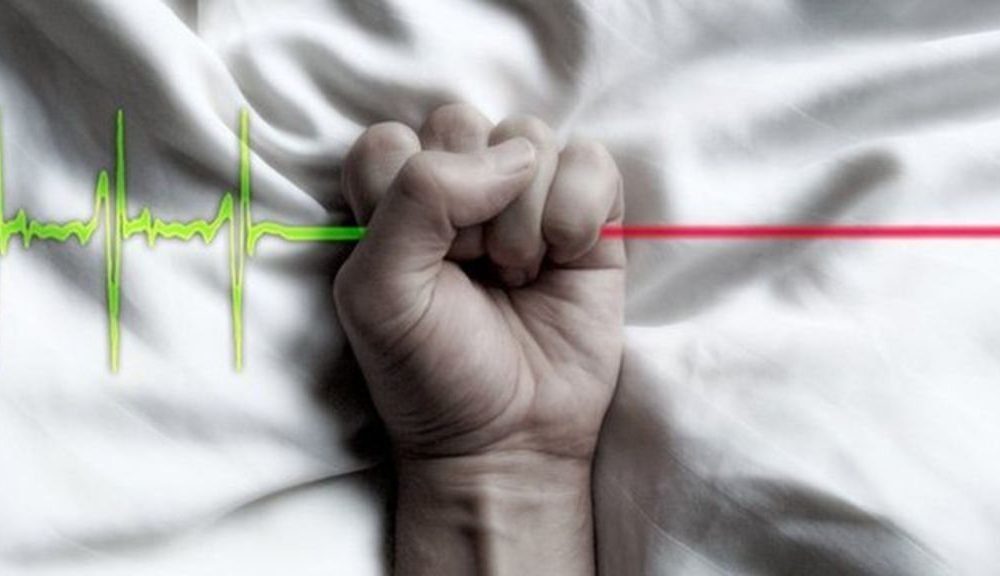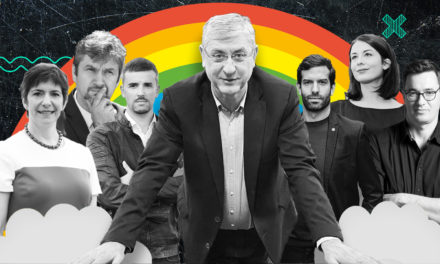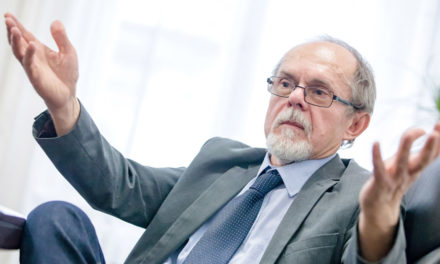It has been proven that Canadian health care providers put pressure on those affected to choose euthanasia, the state-sponsored assisted dying option. And if their court extends this right to minors, we can expect the same abuse that has already happened among adults, writes sociology professor Anne Hendershott on the American Conservative, exemplifying this with some blatantly shocking cases that have come to light.
We've all heard the stereotype that Canadians are the nicest people in the world. They are never impolite, patient, kind and always stand up for others. They have a charter of freedoms and strict laws against hate speech. They care so much about the health of others that they provide universal, single-insurance health care for all of them. No one is turned away because they could not bring themselves to deny others health care. And so it goes until tender-hearted Canadians decide that some people are just a burden to their families or society. And then they resort to the world's most radical euthanasia system.
Following the Supreme Court decision in Carter v. Canada, Canadians have had access to state-sponsored euthanasia since 2015, following the state's promise to ensure a painless death for all who request it. The legal basis is none other than the laws prohibiting assistance in dying
"interfere with liberty by limiting the ability of individuals to make decisions about their physical health and medical care."
The Canadian court also found that
"laws deprive some people of life by forcing them to end their own lives prematurely, fearing that they will be unable to do so when they reach the point where their suffering becomes unbearable".
By 2016, compassionate Canadians decided to expand this right through Bill C-14, allowing eligible adults to receive medical assistance in dying (MAID).
Today, even nurses can administer drugs that cause the death of the patient.
Canada, ever the rational actor it is, has created a complex bureaucracy to manage its state-sponsored euthanasia program. The death protocol has become so routine in the country that
In 2021, more than 10,000 people ended their lives through taxpayer-funded euthanasia, representing 3 percent of all deaths in the country that year.
And expansion is planned; By 2023, "mature minors" will probably be able to end their lives in the same way, and may even be encouraged to do so. In the position statement published by the Canadian Society of Pediatricians, the pediatricians gave a cursory nod to the need for palliative care, and then wholeheartedly supported the "assistance in dying" provided to their young patients. They recommend:
“Governments at all levels should develop policies and procedures that protect young people from the potential risks, harms or abuses of medical assistance in dying, given their unique vulnerability. Procedures for assessing minors' personal capacity to make health care decisions rest with the patient's clinical team and parents, in consultation with other designated experts."
The Canadian Pediatric Society states that Canada's mature minors doctrine “recognizes that a patient's understanding of the nature and consequences of treatment is a factor beyond age, and that children's wishes should be respected in accordance with their developing maturity.
The doctrine allows doctors to use adult-like considerations to determine a child's capacity to consent."
The doctrine of mature minors is recognized by common law in most of Canada.
If the Court extends the right to taxpayer-funded assisted dying to minors, we can expect the same abuses that have already occurred among adults.
comprehensive study of Canada's euthanasia laws Maria Cheng revealed that kind and compassionate Canadian health professionals may not be as kind and compassionate as we thought. Documenting cases where health care providers pressured people to choose death, Cheng published the story of Roger Foley, a Canadian with a degenerative brain disorder who said that although he had never thought about euthanasia before, health care professionals pressured him to do so. he was exercised to consider. This scared him so much that he started secretly recording some of their conversations.
In one audio excerpt, the hospital's ethics director told Foley that "it would cost $1,500 a day to stay in the hospital." Foley responded that the mention of the awards seemed like coercion and asked what the plan was for her long-term care.
“Roger, this is not my show,” the ethics director replied. "My job is just to talk to you to see if you're interested in assisted dying."
Foley said he had never mentioned euthanasia before. But the hospital says there's nothing stopping staff from raising the issue.
Cheng has documented several cases of healthcare providers pressuring patients to end their own lives or that of their loved ones. Such was the case of Candice Lewis, a 25-year-old woman with cerebral palsy and scoliosis who was taken to an emergency room in Newfoundland.
"During her hospital stay," Cheng reported, "a doctor told Lewis' mother that her daughter was eligible for euthanasia, and that it would be selfish for the mother to choose not to pursue that option."
Catholic writer Flannery O'Connor made the chilling statement that
"in the absence of faith, we govern with tenderness. And tenderness leads to the gas chamber.”
By doing this, he was trying to point out that tenderness or sentimentality and politeness can never curb the darker forces inherent in human nature. There are dark forces at work in Canada.
And while a large-scale study by Canadian linguists comparing more than 40 million tweets by Canadians and Americans found that Canadians' tweets are much "kinder" and more positive than Americans', "kindness" can never hide these dark forces. Linguists have come to the conclusion that the linguistic behavior of nations reflects stereotypes of the national character of rude Americans and compassionate Canadians. If this polite Canadian stereotype holds true, then Canadians can rest assured that when a Canadian doctor, nurse or ethicist asks you to consider government-sponsored assisted dying, he or she will do so in the most polite manner possible.
Featured image: BBC













